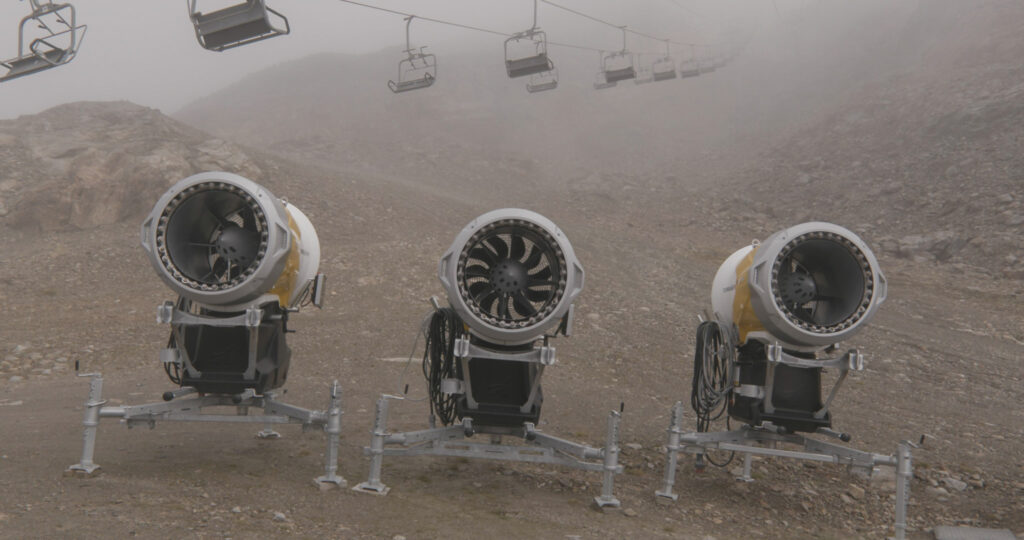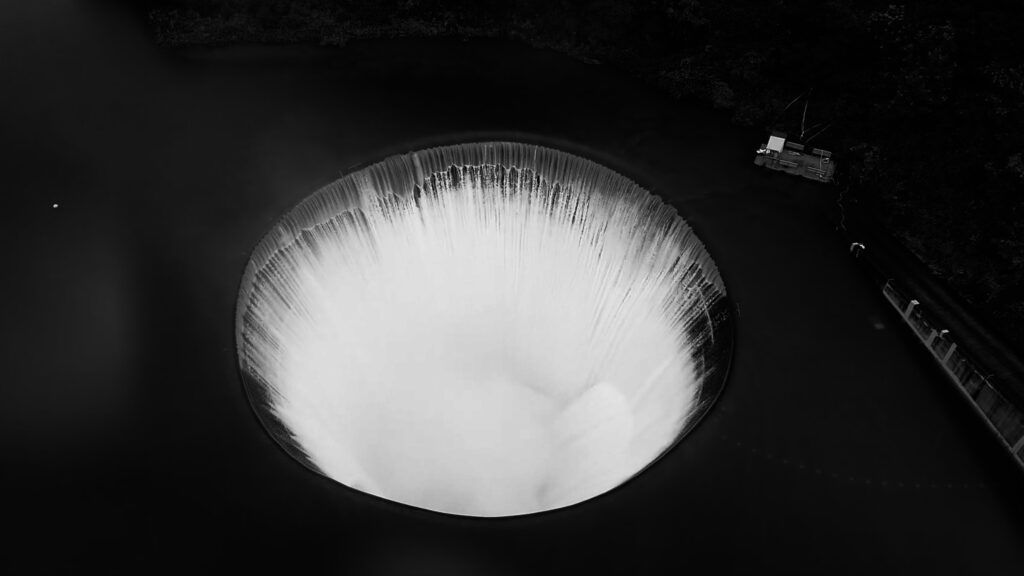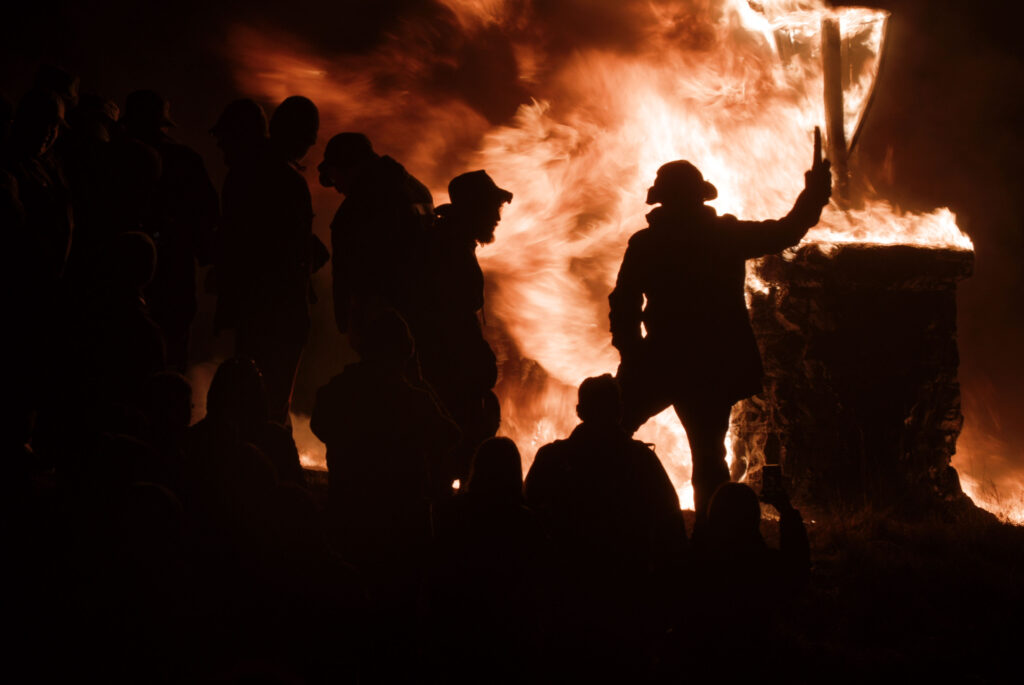Max Blocking’s Tomorrow, the Burning Heavens revisits 16th-century accounts of celestial events that sparked apocalyptic fears, setting them against the artificial winter landscapes of modern ski resorts. Through this interplay, the film explores how belief, image-making, and environmental intervention continue to shape our perceptions of the world. Jade Sim’s Eternal River follows a family’s quiet acts of maintenance and care as they contend with the uncertain future of their home. As government policies threaten their claim to the space, the film observes their gestures of resilience—routines that hold meaning in a place where continuity can no longer be taken for granted. Fergus Carmichael’s Rhadinace moves between an oil rig ‘graveyard’ in northern Scotland and a local fire ritual, adopting a cinematic language informed by eco and folk horror. Seamlessly blending documentary realism with fiction, the film considers extraction, erasure, and the lasting imprints of industry on both landscape and community. These films, in different ways, navigate the tensions between disappearance, intervention and adaptation, inviting reflection on how places, their communities, and histories remain unsettled.

Tomorrow, the Burning Heavens
1560: the beginning of the so-called ‘Little Ice Age’. Uncanny celestial events ignite the skies over Germany and Switzerland, leading people to believe the world is ending.‘Tomorrow, the Burning Heavens’ reconsiders these apocalyptic visions, once captured in hand-colored woodblock prints, and returns to the Alps to observe the industrial production of winter landscapes in a modern-day skiing resort. Here, past and present dreams and nightmares are melted together in a film about the interplay of image-making, technology and faith during times of environmental collapse.

Eternal River
‘Eternal River’ traces a family’s history of resilience in the wake of loss and displacement. The filmmaker’s grandfather, who lost both his hand and family during the Korean War, built a home that has anchored three generations. Now, as government dam policies threaten their claim to this space, her uncle and mother persist in their daily rituals—repairing the house, tending the garden. Their gestures carry a quiet awareness that the home will not remain theirs, yet they continue, as if the act of care itself might hold it in place a little longer.

Rhadinace
With their wells depleted, offshore platforms await decommissioning, while on land, oil burns in an annual ritual. Rhadinace builds on previous explorations of socio-ecological relationships, investigating an oil rig ‘graveyard’ in northern Scotland and the surrounding community. Through a partly fictionalised account of the Clavie burning, the film weaves together industry and tradition. Its score and pacing deliberately evoke echoes of eco and folk horror cinema, heightening the tension between extraction, mythology, and the natural world.

